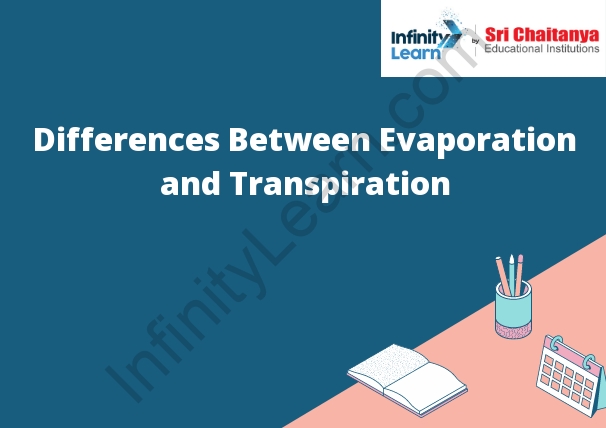Table of Contents
Evaporation and Transpiration
Evaporation is the process of a liquid turning into a gas. This can happen when the liquid is exposed to air, as the water molecules in the liquid escape into the air.
Transpiration is the process of water vapor being released from plants. This happens when the water vapor escapes from the leaves of the plants and enters the air.

Evaporation
is the process of a liquid turning into a gas. When a liquid evaporates, it turns into a gas and leaves the surface of the liquid. The vaporization of a liquid occurs when the liquid molecules gain enough energy to break free from the surface of the liquid. This can happen when the liquid is heated, when the liquid is in contact with a warm object, or when the liquid is in a windy area.
Transpiration
is the process by which water is transferred from the leaves of a plant to the atmosphere. The water is evaporated from the plant’s leaves and carried away by the wind. Transpiration occurs as a result of the plant’s need for water and the plant’s ability to evaporate water from its leaves.
The water that is transpired is pulled up from the roots of the plant by the process of osmosis. The water molecules move from an area of high concentration (the soil) to an area of low concentration (the leaves). This process is driven by the plant’s need for water and the plant’s ability to create a concentration gradient.
Some External Factors Which Affect the Process of Transpiration Include –
The external factors which affect the process of transpiration include temperature, humidity, and air movement.
The higher the temperature, the more active the molecules in the liquid, and the more quickly they will move around. This means that the rate of evaporation will be faster, and transpiration will occur more quickly.
The higher the humidity, the more difficult it is for the liquid to turn into a gas. This means that the rate of evaporation will be slower, and transpiration will occur more slowly.
The faster the air moves, the more quickly the liquid will evaporate. This means that the rate of transpiration will be faster.
Difference Between Evaporation and Transpiration
The main difference between evaporation and transpiration is that evaporation is the process of converting a liquid to a gas, while transpiration is the process of water vapor escaping from a plant. Evaporation occurs when the surface of a liquid is exposed to air and the molecules in the liquid are energized by the heat of the sun or air. These molecules then escape from the liquid and enter the air as a gas. Transpiration occurs when the water vapor in the air surrounding a plant is drawn into the plant’s roots. The water vapor is then transported through the plant’s stem and leaves, where it escapes into the air as water droplets.
Evapotranspiration
Evapotranspiration is the process of water vaporization from the Earth’s surface and its atmosphere. The water vaporization occurs due to the energy from the sun and the temperature difference between the Earth’s surface and the atmosphere. The process of evapotranspiration is important for the water cycle and it helps to regulate the Earth’s climate.
Transpiration and Groundwater
Transpiration is the process of water loss from a plant’s leaves. The water is drawn up from the roots by the plant’s roots and is used in photosynthesis. The water then evaporates from the leaves, and the process of transpiration pulls more water up from the roots.
Groundwater is water that is found below the surface of the Earth. It is made up of rain and snow that has seeped into the ground, as well as water that has melted from glaciers or ice caps. Groundwater is also made up of water that has been absorbed by the soil.





